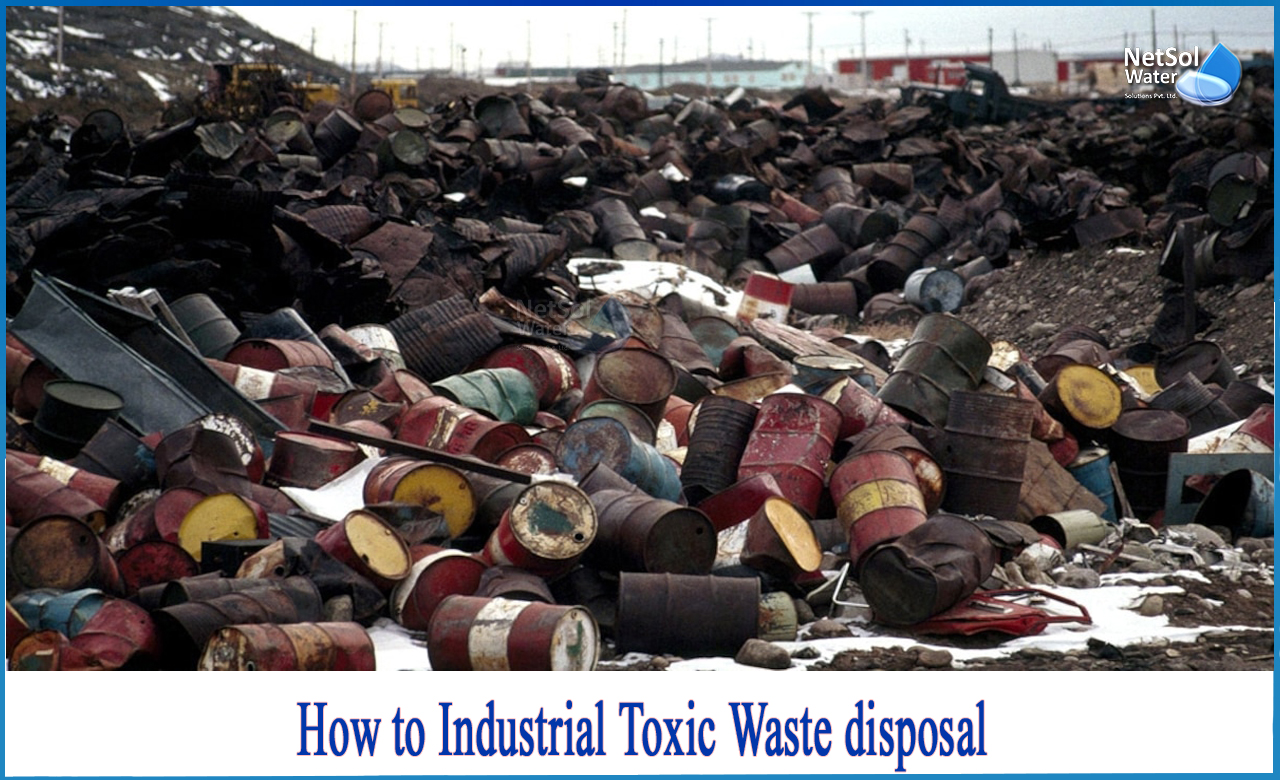What is Toxic waste?
Toxic waste is poisonous, radioactive, explosive, carcinogenic (causes cancer), mutagenic (causes chromosome damage), teratogenic (causes birth defects), or bio-accumulative (that is, increasing in concentration at the higher ends of food chains). It is defined as waste that contains deadly pathogens. When poisonous waste is swallowed, breathed, or absorbed via the skin, poisoning ensues. It is an undesirable material that can be harmful if swallowed, inhaled, or absorbed through the skin.
How is toxic waste produced?
Industrial, chemical, and biological activities produce toxic waste. Toxins can be detected in garbage from homes, offices, and businesses. It has the potential to harm plants, animals, and people. It eventually ends up in the earth, waterways, and even the atmosphere. Toxins like lead and mercury can last for years in the environment and build up over time. When wildlife or humans consume fish or other prey, they are exposed to hazardous chemicals. Toxic chemicals in many modern household items, such as televisions, phones, and computers, can harm water, soil, and air. Disposing of this type of garbage poses a significant public health risk.
Types of toxic wastes
Chemical wastes, radioactive wastes, and medical wastes are the three broad kinds of toxic waste products.
A: Chemical wastes that are corrosive, combustible, reactive (that is, compounds that react with other chemicals to produce explosive or toxic by-products), acutely poisonous, carcinogenic, mutagenic, and teratogenic—as well as heavy metals (such as lead and mercury)—are classified as the first group.
B: Radioactive wastes are made up of elements and compounds that emit or absorb ionizing radiation, as well as any material that interacts with them.
C: Medical wastes are a vast category that includes anything from infectious disease-causing organisms in tissues and fluids to the materials and containers that hold and transport them.
The UN Environment Programme (UNEP) has identified 11 main compounds that are hazardous to human health. These are;
1: Arsenic
2: Asbestos
3: Cadmium
4: Chromium
5: Medical waste
6: Cyanide
7: Lead
8: Mercury
9: PCBs or polychlorinated biphenyls
10: POPs or persistent organic pollutants
11: Strong acids or alkalis
How to Industrial toxic waste disposal?
It's critical to seek experienced help when dealing with business, industrial, and manufacturing waste. Companies will be liable for any hazardous waste they generate from the manufacturing process through the end product, according to the Resource Conservation and Recovery Act (RCRA). This encompasses all hazardous waste generation, transportation, treatment, storage, and disposal.
1: Toxic wastes can be disposed of in specially constructed landfills or incinerated, depending on their chemical composition. Land disposal involves burying waste in landfills that should be "permanently" sealed to keep the waste contained. Waste can be enclosed in concrete or lined with clay or plastic in landfills.
2: Toxic wastes can be also disposed of by bioremediation, which involves adding living organisms to the trash to help it breakdown organically, convert toxins, or lower them to environmentally safe levels.
Hazardous waste management is a difficult task. Netsol Water can assist you with any part of a project to ensure that it is completed appropriate. To begin the conversation, please contact us at +919650608473 or send an email to enquiry@netsolwater.com for further information or product purchase related query.



